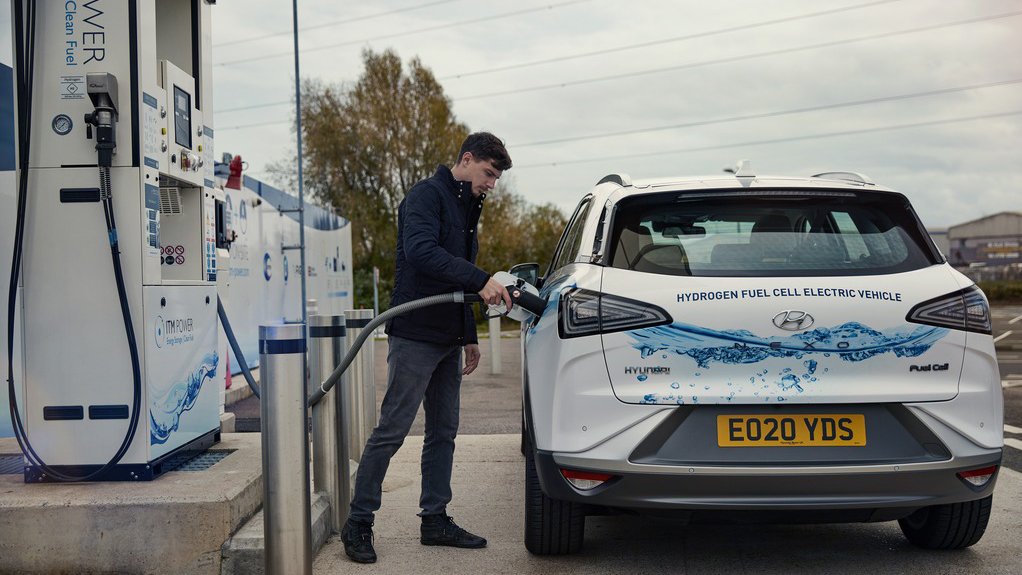Hydrogen-powered mobility to only take off after 2030 – Fitch Solutions
While it expects hydrogen to be a major disruptor for the mobility ecosystem, the nascent maturity of the technology means that it will only “really see a meaningful impact” in decarbonising the transportation system towards the end of the decade, says Fitch Solutions principal autos analyst Joshua Cobb.
“That said, over the past couple of years, we have seen a lot of investment going into testing and developing hydrogen applications throughout the mobility ecosystem, especially when it comes to air, rail and sea transportation methods as these are some of the highest polluting components of the global transportation industry,” he notes.
Commercial and passenger fuel cell vehicles are the segments that offer the greatest potential for adoption over Fitch Solutions’ 2022 to 2030 forecasting period.
However, while Fitch Solutions continues to expect strong growth in hydrogen fuel-cell vehicles sales over its forecast period, Cobb highlights that companies are increasingly looking towards liquid natural gas to “kickstart” the decarbonisation of their logistics operations and supply chains.
“Despite the challenges from natural gas-powered vehicles, we expect government and corporates to continue to adopt zero-emission vehicles as their decarbonisation strategies gain pace and as the requirements become more strict,” he says.
Taking that into account, Fitch Solutions expects hydrogen fuel-cell vehicle sales to average yearly growth of about 50% over the next ten years, propelling global fuel-cell vehicle sales from about 11 000 units in 2020, to just under 1.3-million units by the end of 2030.
“We also expect a lot more diversification to take place within the global fuel-cell vehicle market. We forecast that Asia’s market share of global fuel-cell vehicle sales will shrink from a 83% in 2020, to about 36% by the end of the decade,” says Cobb.
This is as more countries adopt fuel-cell vehicle-supporting policies and more corporates start to shift towards hydrogen fuel cell vehicles over the longer term.
Nonetheless, Fitch Solutions suggests that fuel-cell vehicle sales will continue to be restricted by the slow pace of development of the refuelling network; however, the firm expects refuelling infrastructure policies from the likes of the European Union and the US to accelerate towards 2030.
DEMAND
As for demand, Fitch Solutions says hydrogen demand from the automotive sector was estimated at about 120 000 t in 2020. “We expect significant growth over our forecast period. Currently, we forecast that hydrogen demand from autos will reach a high of 21.75-million tonnes by the end of 2030,” he says.
In this regard, Fitch Solutions expects Asia to remain in the large-use market for hydrogen for its fuel-cell vehicles as it has been one of the earlier adopters in terms of fuel cell vehicles.
“We also highlight that we expect efficiency gains in fuel cell technology will see slower hydrogen demand growth in markets such as Europe where fuel cell vehicle uptake will accelerate only starting by 2030.
“This means that, because of our expectation that efficiency gains within fuel cell technology, Europe[an] hydrogen demand will remain somewhat less than that of Asia,” says Cobb.
Meanwhile, he points out that South Korea currently boasts the largest fuel cell vehicle fleet globally, with Fitch Solutions expecting the country to maintain its lead up until about 2029, at which point the firm expects the US fleet to overtake it.
Comments
Press Office
Announcements
What's On
Subscribe to improve your user experience...
Option 1 (equivalent of R125 a month):
Receive a weekly copy of Creamer Media's Engineering News & Mining Weekly magazine
(print copy for those in South Africa and e-magazine for those outside of South Africa)
Receive daily email newsletters
Access to full search results
Access archive of magazine back copies
Access to Projects in Progress
Access to ONE Research Report of your choice in PDF format
Option 2 (equivalent of R375 a month):
All benefits from Option 1
PLUS
Access to Creamer Media's Research Channel Africa for ALL Research Reports, in PDF format, on various industrial and mining sectors
including Electricity; Water; Energy Transition; Hydrogen; Roads, Rail and Ports; Coal; Gold; Platinum; Battery Metals; etc.
Already a subscriber?
Forgotten your password?
Receive weekly copy of Creamer Media's Engineering News & Mining Weekly magazine (print copy for those in South Africa and e-magazine for those outside of South Africa)
➕
Recieve daily email newsletters
➕
Access to full search results
➕
Access archive of magazine back copies
➕
Access to Projects in Progress
➕
Access to ONE Research Report of your choice in PDF format
RESEARCH CHANNEL AFRICA
R4500 (equivalent of R375 a month)
SUBSCRIBEAll benefits from Option 1
➕
Access to Creamer Media's Research Channel Africa for ALL Research Reports on various industrial and mining sectors, in PDF format, including on:
Electricity
➕
Water
➕
Energy Transition
➕
Hydrogen
➕
Roads, Rail and Ports
➕
Coal
➕
Gold
➕
Platinum
➕
Battery Metals
➕
etc.
Receive all benefits from Option 1 or Option 2 delivered to numerous people at your company
➕
Multiple User names and Passwords for simultaneous log-ins
➕
Intranet integration access to all in your organisation





















